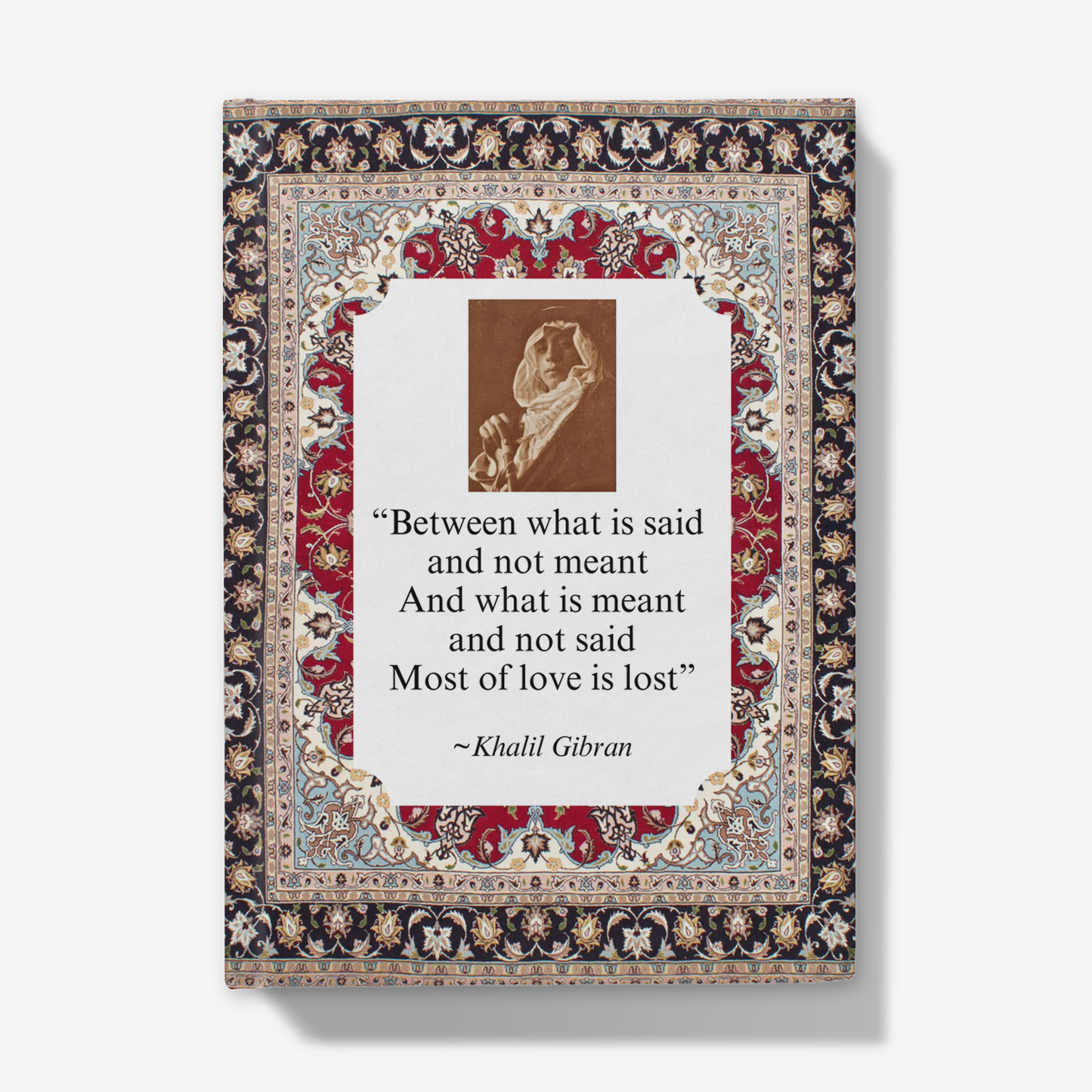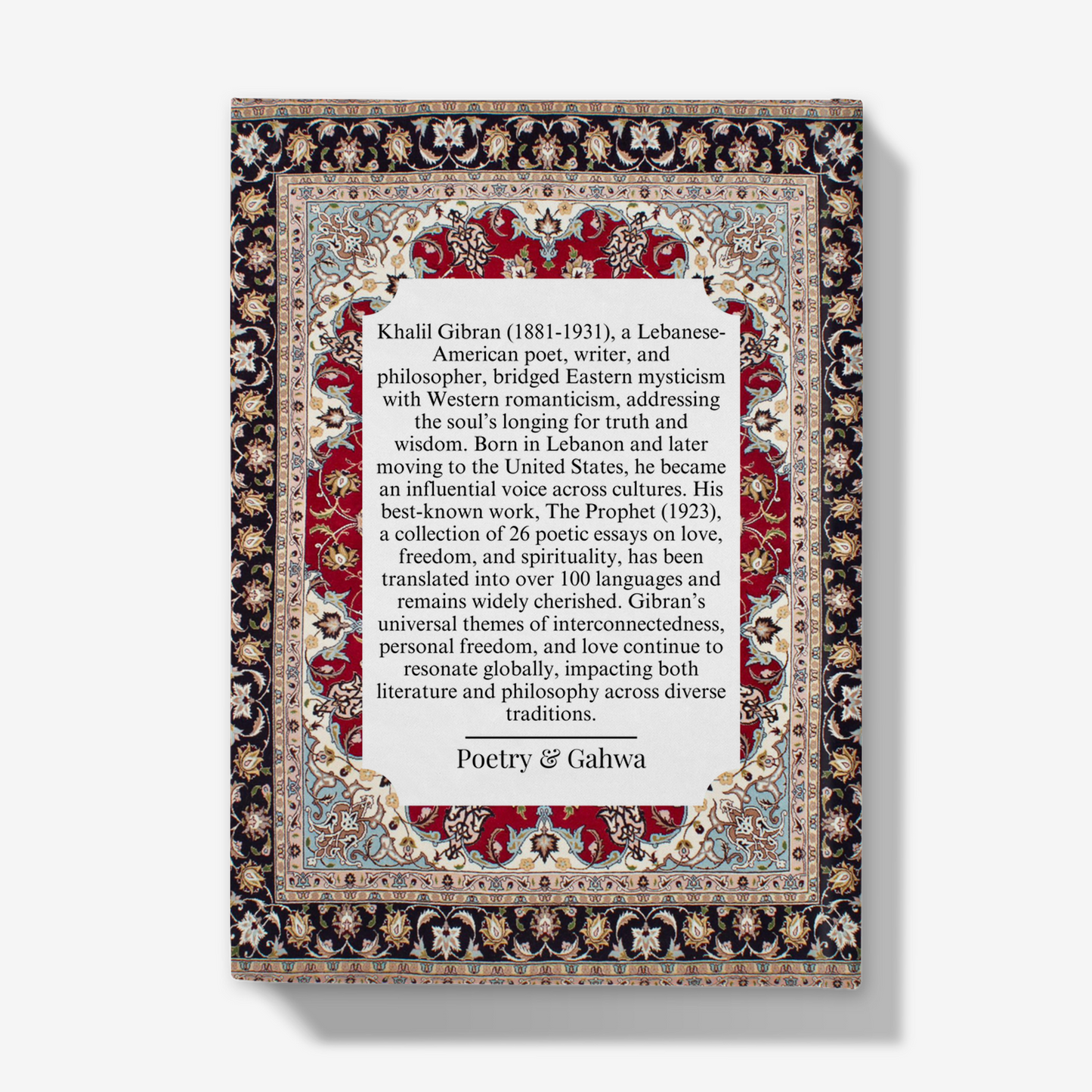Poetry & Gahwa
Khalil Gibran: 'Between what is said and not meant And what is meant and not said Most of love is lost' Journal
Khalil Gibran: 'Between what is said and not meant And what is meant and not said Most of love is lost' Journal
Couldn't load pickup availability
'Between what is said and not meant
And what is meant and not said
Most of love is lost'
~Khalil Gibran
Experience the art of writing with the Ahmed Shawqi Journal, a timeless companion for those who cherish the elegance of thoughtful design.
Available in a convenient 5 x 7” format, this journal offers a robust 260gsm hardback cover with a chipboard construction and refined vinyl laminate finish, providing unmatched durability and sophistication.
Inside, 128 pages of premium 90gsm paper await your every word, idea, or sketch.
Choose from ruled, graph, or blank pages to best suit your unique creative pursuits.
With full-bleed print on the front and back covers, the Ibn Sina Journal is crafted to inspire and elevate your writing experience.
Whether for journaling, note-taking, or artistic exploration, this journal transforms the simple act of writing into an art form.
ABOUT AHMED SHAWQI
Khalil Gibran (1881-1931) is a Lebanese-American poet, writer, and philosopher, who bridged the soul’s longing for truth with the world’s eternal search for wisdom.
Born in what is now modern-day Lebanon, Gibran moved to the United States as a young man, where he became an influential voice in both Eastern and Western literary traditions. His most famous work, The Prophet (1923), is a collection of 26 poetic essays that explores timeless themes such as love, freedom, work, and spirituality. Written in a lyrical, mystical style, The Prophet has been translated into more than 100 languages and remains one of the most widely read and beloved books of the 20th century. Gibran’s blend of Eastern mysticism and Western romanticism appealed to readers seeking spiritual and philosophical guidance.
Gibran’s impact on global literature and philosophy is immense, as his works transcend cultural and religious boundaries. His ideas about the interconnectedness of all humanity, the pursuit of personal freedom, and the power of love resonated with readers from diverse backgrounds. Gibran’s writings have influenced spiritual movements, literary circles, and even political discourse, especially in the Arab world where he is considered one of the most influential writers of modern Arabic literature. His philosophy emphasizes the universality of human experience, bridging the gap between East and West, and his poetic vision continues to inspire generations of thinkers, artists, and spiritual seekers worldwide.



